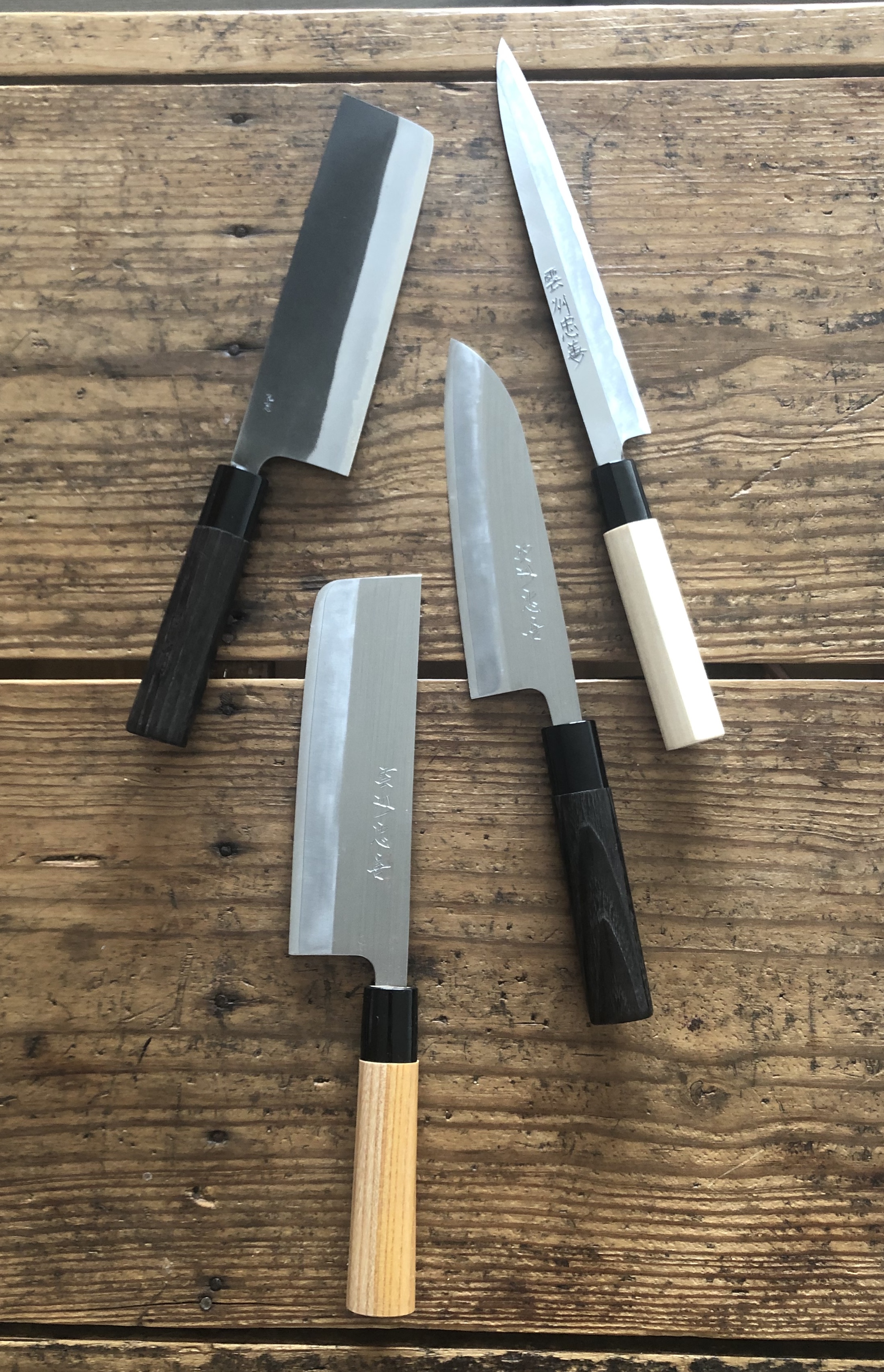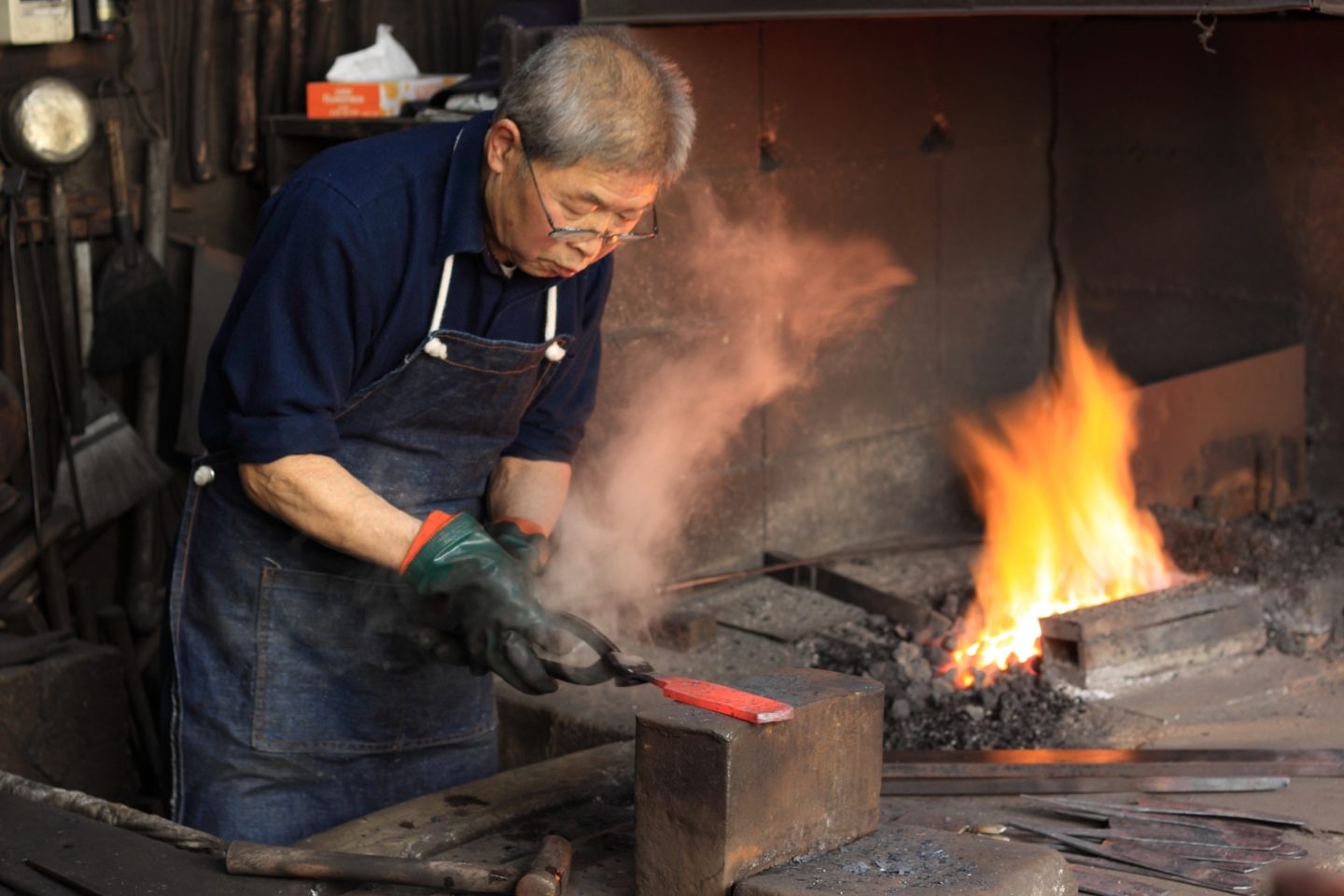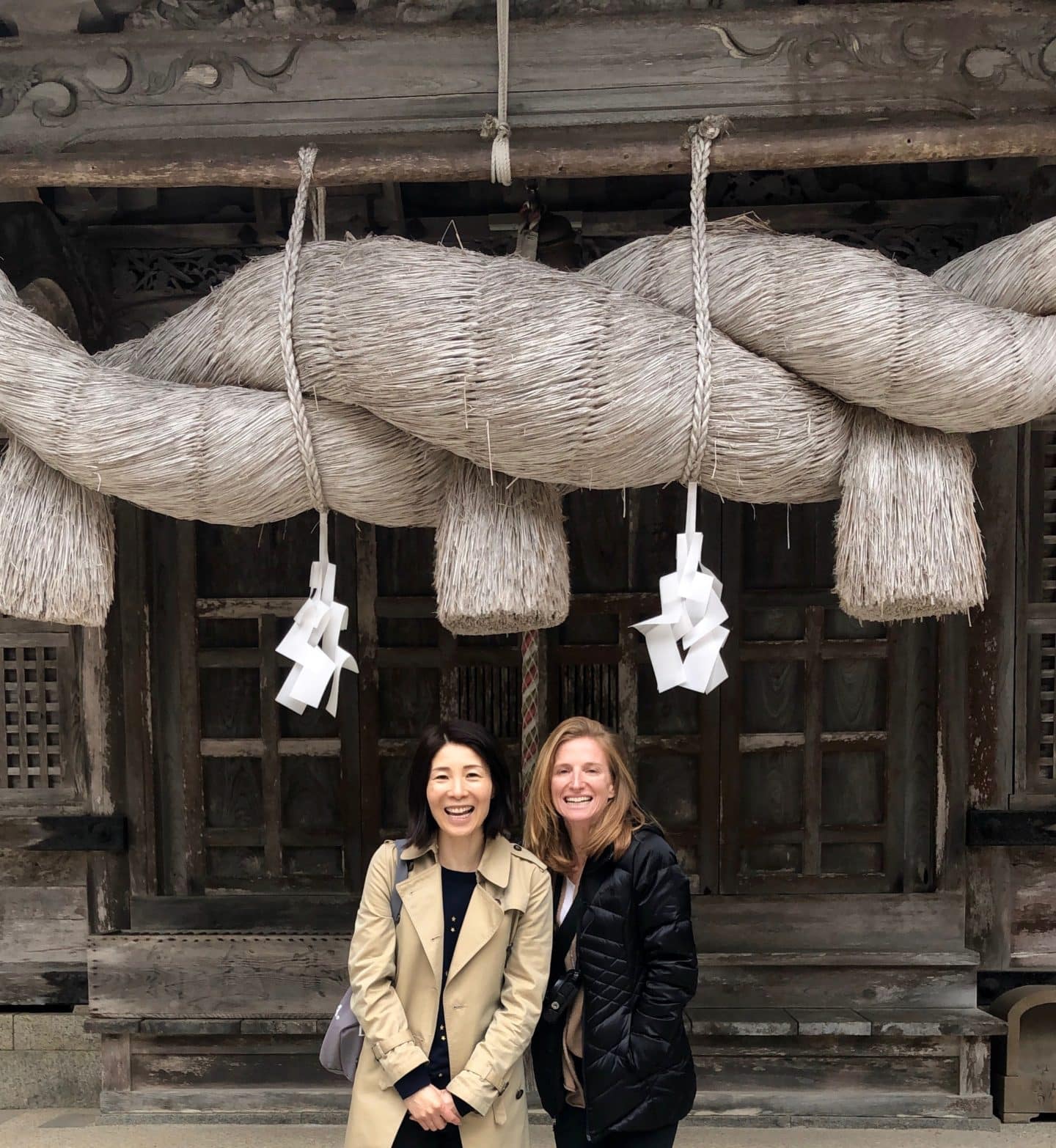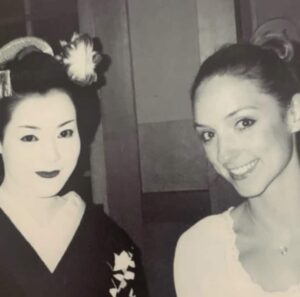
Written by Guest Bloggers Mayuko Rutledge & Ali Buford, Co-Founders of Jikuu Japan.
They started their company after finding the knife shopping process to be difficult and not very transparent (hard to understand which knife to buy, where/how it was made and why that matters, how to take care of it etc.) in Tokyo. They wanted to make a change in this area and help more people experience the joy of a great knife at a reasonable price point.
They also hope to play a small role in supporting local artisans by bringing these treasures to a broader market.
Jikuu allows users to enjoy a little piece of Japanese history everyday when using their Jikuu knives.

I’m so delighted that Mayuko & Ali have been generous enough to share the best ways to care for high quality knives.
It’s no surprise that knives are one of the most popular take homes from Japan: the quality and craftsmanship are in a different league. But what can be surprising is that these incredibly sharp and strong tools are also delicate and need a different level of TLC.
Some knives are just easier to care for than others because they have stain-resistant qualities which prevent rusting.
By following just a handful of rules, your knives can last longer and chop better — for many years to come. At the same time, it’s important to note that these are just general rules and your knife will come with specific instructions for its own care. A good knife deserves good care, so here are four to follow:
-
Clean with caution. Never put a good knife in the dishwasher. Detergents can damage the blade and too much water can warp a wood handle. Instead, use a soft sponge with a mild soap and make sure to fully dry the knife immediately afterward. The prevents the blade from degrading or rusting and the handle – if it is made from wood – from rotting.
-
Don’t push the limits of the blade. It can be really tempting to try and see how much that sharp edge can handle, but your knife isn’t the stuff of infomercials. If it’s a vegetable knife, stick to vegetables. If it’s a chef’s knife, stick to meat, fish and vegetables. Special cleavers are made for bones and other hard material like frozen food.
-
Not all cutting boards are equal. Have you felt the difference between a softer wood cutting board like gingko tree versus a hard one like glass or bamboo? The give in the wood makes for an easier chopping experience for both chef and knife. Anything too hard can dull or even damage the knife.
-
A dull knife is like a bike with flat tires. Japanese knives require a different type of sharpening than western knives using whetstones. It’s easy when living in Tokyo to find a local sharpener and with the rise in popularity outside of Japan, it has also become easy to find sharpeners globally. Any other option is to learn to do it yourself by taking a class, essential for learning how to do it properly. (Be cautious with online video tutorials.) Please also avoid using a honing rod which can actually damage the blade.
A solid maintenance routine helps to extend the life and preserve the quality of your knife — which is guaranteed to make everyday tasks in the kitchen much simpler. A little effort for a big return.
Please note that the cutting board in the photo with the lemon is a cutting board we sell, made from Japanese Gingko. Nice and soft on the knife!

Mayuko & Ali work with knife makers in the Shimane prefecture (where Mayuko grew up) that produce beautiful, low-maintenance knives, as their families have been doing for generations.
They started their company after finding the knife shopping process to be difficult and not very transparent (hard to understand which knife to buy, where/how it was made and why that matters, how to take care of it etc.) in Tokyo. They wanted to make a change in this area and help more people experience the joy of a great knife at a reasonable price point.
They also hope to play a small role in supporting local artisans by bringing these treasures to a broader market.
Jikuu allows users to enjoy a little piece of Japanese history everyday when using their Jikuu knives.
Here is a picture of co-founders Mayuko & Ali. This photo was taken at Kanayago Shrine in Shimane, dedicated to the deity of steel production.

For more information about Jikuu or to reach out and ask further questions, be sure to stop by the Jikuu Japan website.





